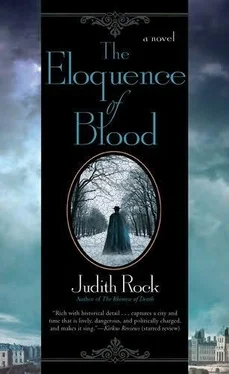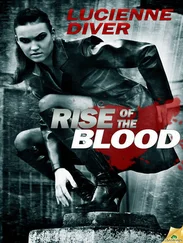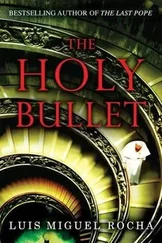Judith Rock - The Eloquence of Blood
Здесь есть возможность читать онлайн «Judith Rock - The Eloquence of Blood» весь текст электронной книги совершенно бесплатно (целиком полную версию без сокращений). В некоторых случаях можно слушать аудио, скачать через торрент в формате fb2 и присутствует краткое содержание. Жанр: Исторический детектив, на английском языке. Описание произведения, (предисловие) а так же отзывы посетителей доступны на портале библиотеки ЛибКат.
- Название:The Eloquence of Blood
- Автор:
- Жанр:
- Год:неизвестен
- ISBN:нет данных
- Рейтинг книги:5 / 5. Голосов: 1
-
Избранное:Добавить в избранное
- Отзывы:
-
Ваша оценка:
- 100
- 1
- 2
- 3
- 4
- 5
The Eloquence of Blood: краткое содержание, описание и аннотация
Предлагаем к чтению аннотацию, описание, краткое содержание или предисловие (зависит от того, что написал сам автор книги «The Eloquence of Blood»). Если вы не нашли необходимую информацию о книге — напишите в комментариях, мы постараемся отыскать её.
The Eloquence of Blood — читать онлайн бесплатно полную книгу (весь текст) целиком
Ниже представлен текст книги, разбитый по страницам. Система сохранения места последней прочитанной страницы, позволяет с удобством читать онлайн бесплатно книгу «The Eloquence of Blood», без необходимости каждый раз заново искать на чём Вы остановились. Поставьте закладку, и сможете в любой момент перейти на страницу, на которой закончили чтение.
Интервал:
Закладка:
“God forgive you.” Brion’s eyes filled with tears and his voice quivered. “If I were as old as you, I would have more care for my immortal soul.”
“You will not need to, when you are as old as I, Gilles. Your frightened little soul will long since have left your unused body and be flapping around God’s ears like a mosquito, whining its little prayers.”
The old man’s attack was so full of acid that it took Charles’s breath away. For the first time, Charles felt some sympathy for Gilles Brion. But if the young man thought that the Capuchins were going to coddle his overweening self-love, he was, from what Charles knew of Capuchins, in for an unpleasantly surprising novitiate. If he ever got even that far.
Both the young Brions were staring furiously at Callot. The boy’s mouth was still trembling but the girl looked as though, had Charles not been there, the commissaire might have had two murders on his hands. Gilles Brion finally blundered out of the salon, and his sister followed him. Charles and Callot listened to their footsteps on the stairs. The murmur of their voices rose and fell in the foyer until, upon a dismayed cry from Mlle Brion, the house door opened and closed. Then they heard her on the stairs again and saw her hurry past the salon door and climb to the floor above. She was crying as though her heart would break.
Callot sighed heavily. “I apologize for Gilles. As they say, dress a spindly bush in lace and fine cloth, it looks like a man. Undress it, it is nothing but a bush.”
“Still, you love him, don’t you?” Charles said, standing by the fire. “Even though you nearly flayed him alive just now.”
“You have a very hearing ear. God help me, of course I love him, I have to love him, he’s my niece’s son, though she was worth a dozen of him. And a dozen of his father, too. But Gilles made me ill just now, the way he talked about Martine. That precious girl is dead, and he thinks only of himself.”
“Do you think he killed her?”
Callot spat into the fire. “Of course not. No matter how much he whined about her-can you imagine complaining about marrying that delectable girl? — he is not stupid enough to have killed her. But I tell you, if he says one more selfish word about her, I may kill him!”
Chapter 8
Outside, the cold was deepening and it was full dark. The street lanterns were lit, but the little rue Perdue had few of them, and Charles had to pick his way carefully over patches of ice. As he went, he admonished himself for his contempt toward Gilles Brion’s claim to a religious vocation. Any Jesuit should know better. “There are very few people,” St. Ignatius had written, “who realize what God would make of them if they abandoned themselves into His hands, and let themselves be formed by His grace.”
But, Charles told himself, even if he had no right to judge Gilles Brion’s vocation, he had every right to find out if the young man had committed murder. And if he had, to bring justice on him. On the whole, though, Charles doubted that he had, simply because he couldn’t imagine Gilles taking such decisive action. He wondered, though, why Mlle Brion had been crying after talking to her brother alone. She was worried, exhausted, grieving, all of that. But she’d left the salon dry-eyed and angry. What had her brother said to reduce her to such despairing tears?
Ahead of Charles, shouts and singing spilled from a tavern. La Queue du Cheval’s sign showed plump brown equine hindquarters, with a long yellow tail sporting a bow of blue ribbon. The Horse’s Tail was doing a good Friday night business, crowded with Parisians celebrating the holidays. In spite of the cold, the door was open, and as Charles got nearer, he caught the words of the song the patrons were bellowing.
“Elle etait riche, elle est morte Les Jesuites dansent sur son corps. Elle est perdue, pour ainsi dire, Les Jesuites pour enrichir!”
His first furious reaction was to start for the tavern door, but his second was less stupid and he kept walking, repeating the gist of the song under his breath. “She was rich, she is dead,” the drinkers were bawling, “the Jesuits are dancing on her corpse. She is lost-so to speak-to make the Jesuits richer!” Though cautiously not saying it outright, the song was claiming that Jesuits had killed Martine or connived at her death. And with a clever little slam at the Society’s commitment to dance-something enemies frequently criticized-thrown in for good measure.
Behind him, men were coming out of the tavern, and Charles moved close to a house wall, as far into shadow as he could, and stood listening and watching.
“So let’s take pots and bells and sing it under their windows, the greedy bastards!” someone said, to a chorus of enthusiastic agreement. “Treacherous to France, that’s what they are,” someone else said drunkenly. “Always after power and gold for the pope.” That got angry muttering, which swelled into shouts of, “Let’s serenade them, then, let’s go!”
But they only reeled around the corner of the tavern, fumbling with their breeches so they could water the tavern wall.
Charles walked on and got back to the college and the fathers’ refectory with time enough before supper to wait for Pere Le Picart in the passage outside the door. Tonight it was someone else’s turn to supervise the students’ supper, so Charles ate with the other Jesuits. When Le Picart arrived, Charles told him about the elder Brion’s continued elusiveness and the younger Brion’s connection to Martine. Then, reluctantly, he recounted the song being sung in The Horse’s Tail. Grim-faced, Le Picart nodded and dismissed him to sit with the other scholastics. Grace was said and Charles greeted the others at his table. Then, avoiding as much conversation as he politely could, he ate his way steadily through a stew of salted fish followed by dried apples. He was more grateful for the crackling fire in the great hooded fireplace than for what was on his plate, but too worried about Martine Mynette’s murder and the poisonous tavern song to pay much attention to either. When the final grace was said, he escaped and went to his chamber-cold, but blessedly quiet and even more blessedly private.
In spite of the chill, he opened a shutter and looked out at the street. The night was windless and the street lanterns hung motionless from their long iron hooks on the sides of buildings. When he’d arrived last summer, the lanterns had hung from chains stretched across the street, but during the autumn the chains had been taken down and the hooks put in place, making it easier to lower and raise the lanterns to replace the two-pound candles they burned. The candles would burn till after midnight, casting gold-tinged shadows on the ground and picking out the ruffles of snow lying along window ledges and the tops of walls. Across the rue St. Jacques, the windows of most of the University houses were dark, but that would change soon, as scholars and professors returned for the start of new classes. On Sunday, Pere Jouvancy would return, and he and Charles would begin working in earnest on the theatre performance scheduled for mid-February. And then it will be Lent, Charles thought, with an inward sigh. A holy season with much to offer mind and spirit, but one the body perpetually dreaded. Fasting was no longer as strict as in times past, but it was strict enough. And would likely be even more so in the refectory this year. Especially if the Mynette fortune went elsewhere.
Charles closed the shutter and went to his prie-dieu. In truth, he didn’t care where the money went. Or most of him didn’t care. Or at least not very much… Though, besides better fare in the refectories, a half dozen new costumes were needed for February’s performance. And Pere Jouvancy had already been talking about new scenery before he left for the holidays. Charles set his candle in the wall holder above the prie-dieu and knelt, pulling his cloak tighter around him. He clasped his hands and gazed at the little painting of the Virgin and Child on the wall in front of him.
Читать дальшеИнтервал:
Закладка:
Похожие книги на «The Eloquence of Blood»
Представляем Вашему вниманию похожие книги на «The Eloquence of Blood» списком для выбора. Мы отобрали схожую по названию и смыслу литературу в надежде предоставить читателям больше вариантов отыскать новые, интересные, ещё непрочитанные произведения.
Обсуждение, отзывы о книге «The Eloquence of Blood» и просто собственные мнения читателей. Оставьте ваши комментарии, напишите, что Вы думаете о произведении, его смысле или главных героях. Укажите что конкретно понравилось, а что нет, и почему Вы так считаете.












